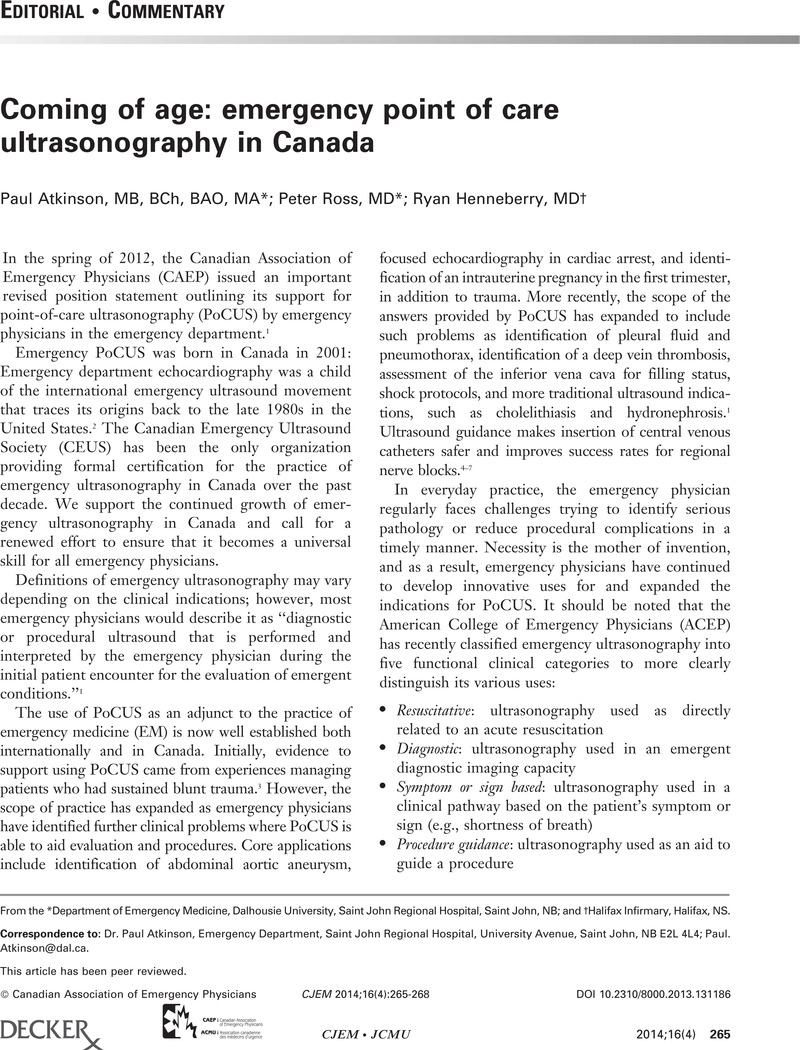Crossref Citations
This article has been cited by the following publications. This list is generated based on data provided by Crossref.
Olszynski, Paul A.
Harris, Tim
Renihan, Patrick
D’Eon, Marcel
and
Premkumar, Kalyani
2016.
Ultrasound during Critical Care Simulation: A Randomized Crossover Study.
CJEM,
Vol. 18,
Issue. 3,
p.
183.
Darras, Kathryn E.
Clark, Sheldon J.
Tso, David K.
Liang, Teresa I.
Krebs, Claudia
Tonseth, R. Petter
Chang, Silvia D.
Forster, Bruce B.
and
Nicolaou, Savvas
2017.
Development of an Undergraduate Radiology Curriculum: Ten-Year Experience from the University of British Columbia.
Canadian Association of Radiologists Journal,
Vol. 68,
Issue. 3,
p.
237.
McKenna, Paul
Thoma, Brent
Milne, Ken
and
Bond, Chris
2017.
SGEM Hot Off the Press: ultrasound during critical care simulation: a randomized crossover study.
CJEM,
Vol. 19,
Issue. 1,
p.
50.
McLean, Devon
Hewitson, Leanne
Atkinson, Paul
Lewis, David
Fraser, Jacqueline
Verheul, Glenn
Mekwan, Jayanand
and
Robinson, Bryn
2019.
ULTRASIM: Ultrasound in trauma simulation.
CJEM,
Vol. 21,
Issue. 1,
p.
125.
Olszynski, Paul
Heslop, Claire
Atkinson, Paul
Lewis, David
Kim, Daniel J.
Pham, Chau
and
Ritcey, Brandon
2020.
Ultrasound at the point of care – Grown up and moving out!.
CJEM,
Vol. 22,
Issue. 1,
p.
1.



